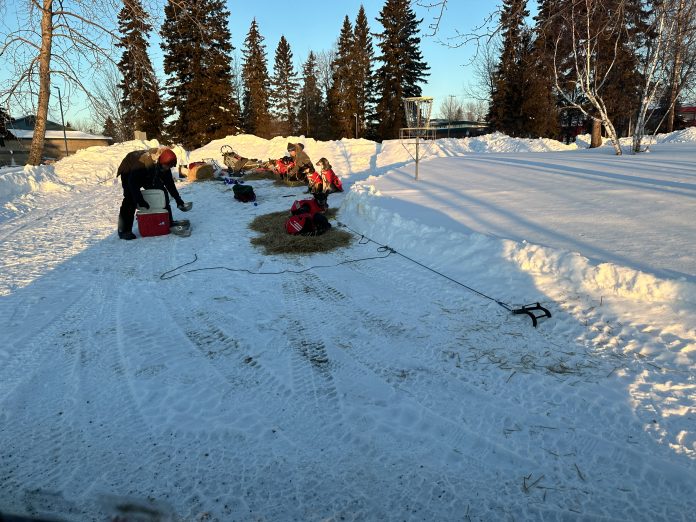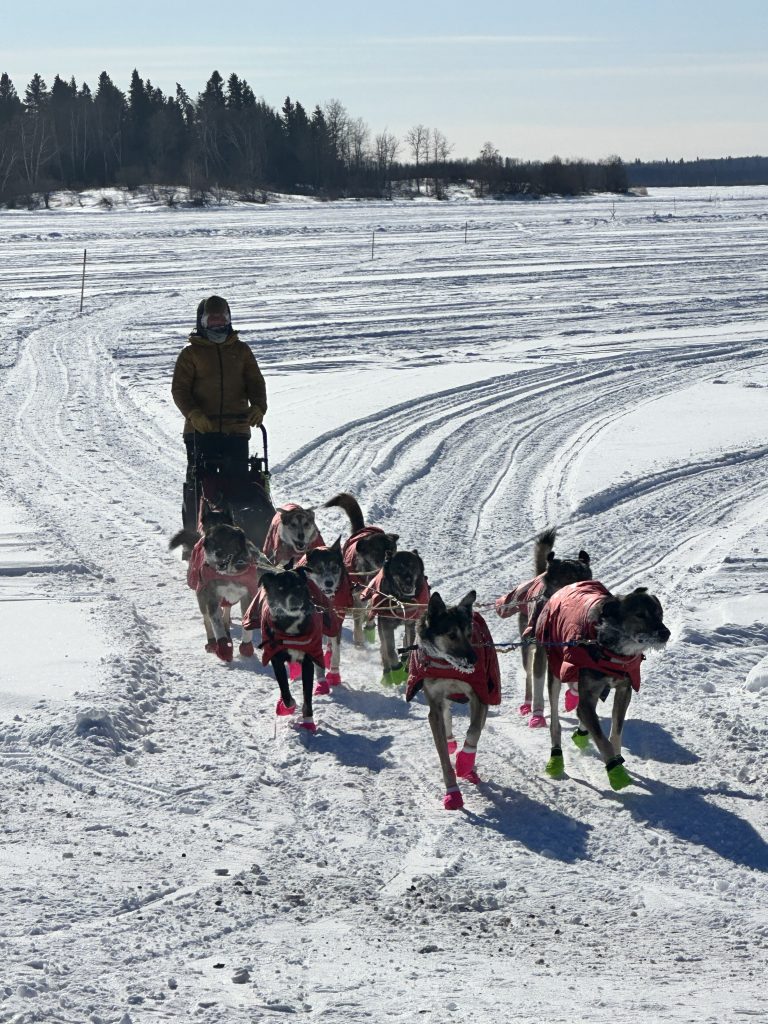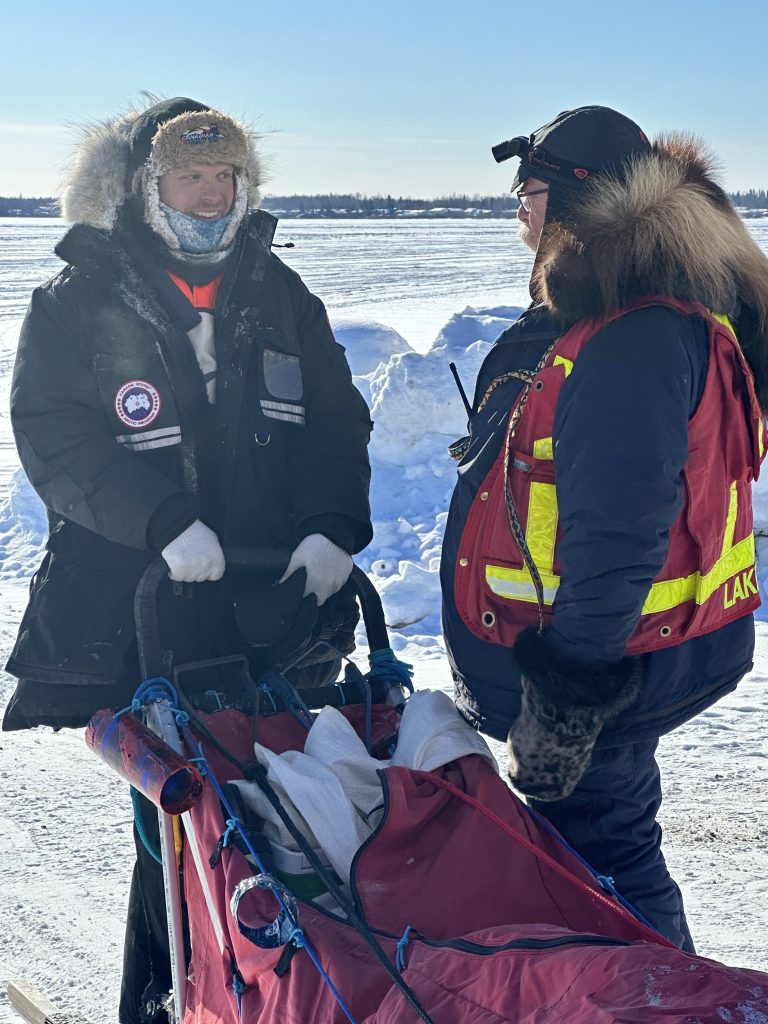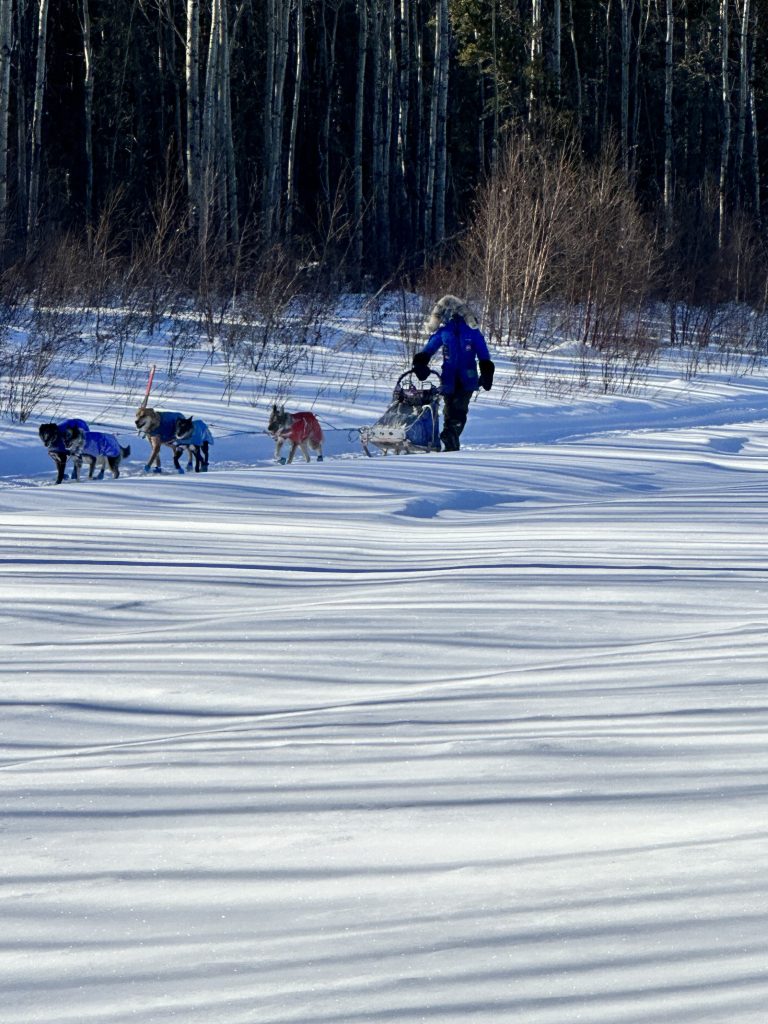
Jesse Terry and Mary England took first and third prize in the 10-dog event of the 2023 Canadian Challenge Dog Sled Race.
The race began in Elk Ridge Tuesday, Feb. 21 and trails led into La Ronge for a mandated eight-hour rest before the last leg of the journey into Missinipe.
England was the only Qualifier in the race, completing the route from Missinipe to La Ronge and back one more time than the other 10-dog teams.

There were 10-dog, 8-dog and 6-dog races in the five-day event. The 8-dog teams left Elk Ridge and came into La Ronge for the mandatory lay over. They left La Ronge together with the 6-dog teams in a mass start on Friday travelling into Missinipe. All races ended in Missinipe, where the Banquet was held on Saturday, Feb. 25.
Ragnar Robinson was the only La Ronge musher in the Canadian Challenge. He finished fourth in the 10-dog race, arriving in Missinipe with eight dogs.

The cold weather was the major challenge to the event, Robinson said, in an interview with the Northern Advocate.
Temperatures plummeted below -40 during the nights.
The race was “organized perfectly and the trails were in really good condition so the dogs didn’t have as tough of a time as I thought they would,” Robinson said. “They just ran very smoothly all the way from Elk Ridge to Missinipe and they didn’t have any issues.”
Robinson dropped two dogs in La Ronge because of minor injuries and “getting sore.”
Mushers can drop as many as five dogs in the 10-dog event, but “you can’t put any extra dogs in.”
Although it was cold, “it was really nice at night this time since there was the Northern Lights all the way from La Ronge to Missinipe” which helped a lot at night.”
The dogs were outfitted in dog jackets and booties to keep them warmer.
“It’s just easier for them to get dehydrated in the cold weather since it’s so dry,” Robinson said. Feeding them “lots of soup and fluids at the checkpoints and that they eat snow along the way when they’re running” is important, particularly in the cold weather.
Most checkpoint, such as Weyakwin, mushers get to sleep inside, but there was one “called the Wilderness Checkpoint, where you’re camped outside so it’s always a bit colder, since you’re sleeping in your sleigh while the dogs rest a bit … that was one of the colder checkpoints, but I just keep moving and kinda stay warm when it’s cold,” he said.
Robinson travelled closely with Mary England through much of the race. “It’s nice to break up the monotony of running 50 miles at a time to have someone at least … to have people nearby so you have extra motivation,” Robinson said, although you are mostly focusing on the dogs.
Preparing for the event meant spending much time running the dogs as much as possible. “You try to emulate what they’re going to do in the race a little. So, we went winter camping before the race.” Camping allowed for the opportunity to run the dogs and rest them in between to, “build the dogs up so they’re strong enough to do the race.”
This was Robinson’s second year participating in the Canadian Challenge. He scratched last year but came in fourth this year.
Robinson said he doubts he will run the 10-race again, but plans to continue in a smaller event, maybe the 5-dog race. Working in the mines, two weeks in and two weeks out, makes training the dogs difficult.
Musher Christina Gibson came into La Ronge. She made the difficult decision to scratch and shared on Facebook, her sense of the race.

“Scratching was hard,” reads the post. “And also not the end of the world. I feel that I truly gained more in knowledge from the way that my race went than I would have if it had gone well, and that I will be using that knowledge wisely in years to come … We headed out onto the ice of Lac La Ronge, and I had a good hard cry for a few minutes, and then shook it off. Scratching is hard. But knowing I made the right decision for my dog team is not.”
Gibson reflects the care and concern mushers are credited with in the relationship with their dogs; it’s a partnership.
The final results and stories of this year’s Canadian Challenge can be found on the Canadian Challenge Dog Sled Facebook page.

